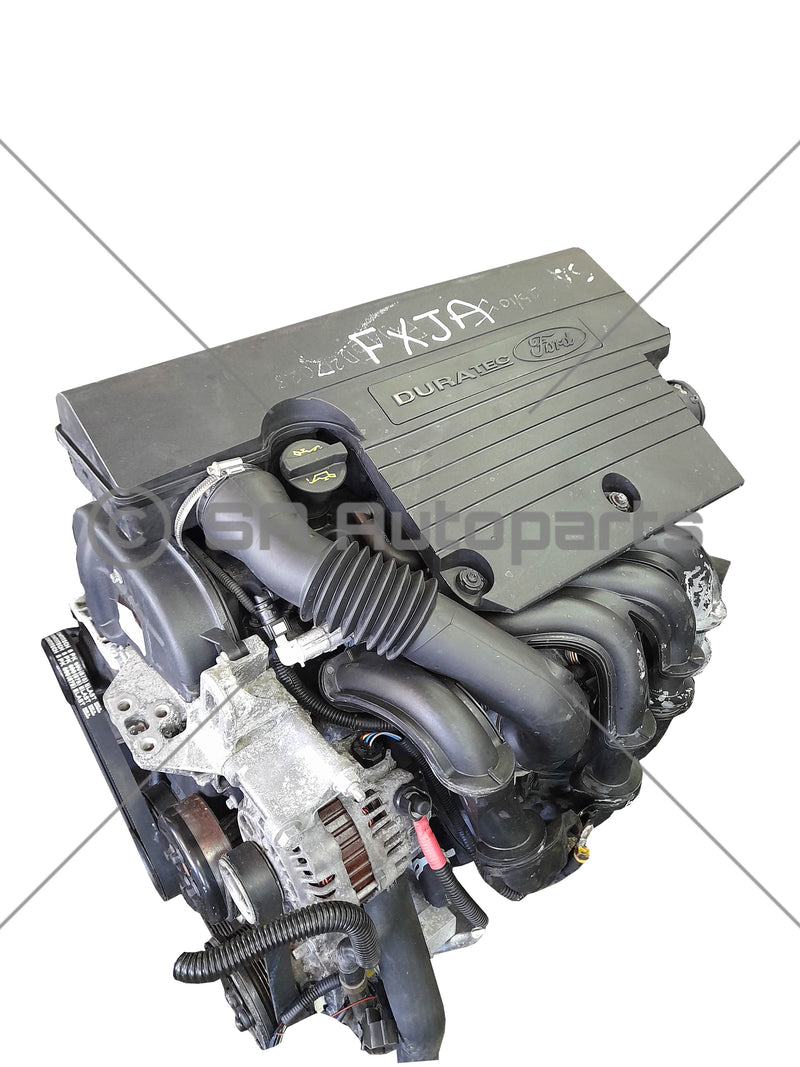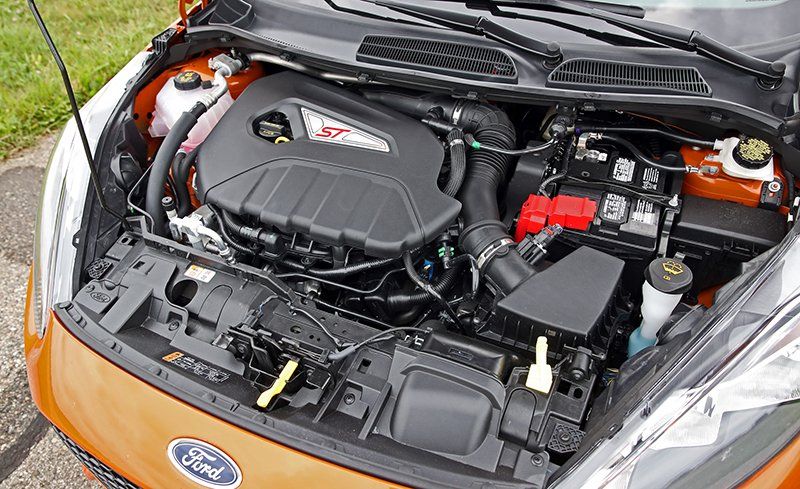How a Ford Fiesta Engine Tune-Up Can Improve Your Car’s Performance
The Future of Engines: Innovations Driving Sustainable Power Solutions
As the automobile sector navigates the essential change in the direction of sustainability, the future of engines is significantly defined by groundbreaking advancements. Electric engine advancements, along with promising developments in hydrogen fuel cells and biofuels, are reshaping the landscape of power remedies. The introduction of hybrid systems even more complicates this development, providing both opportunities and difficulties to decrease exhausts successfully. Coupled with the assimilation of artificial intelligence in engine layout, these technological strides elevate crucial inquiries about their long-term feasibility and influence on traditional paradigms. What might this mean for the sector and customers alike?
Electric Engine Dope
The advancement of electrical engine growths symbolizes a pivotal shift in the aerospace and automotive industries, driven by the immediate need for sustainable choices to fossil gas. This change is characterized by significant developments in battery innovation, power electronics, and electrical motor design, which jointly boost the effectiveness and performance of electric engines.
Recent technologies have actually caused the development of lighter, extra energy-dense batteries, such as lithium-silicon and solid-state batteries, which promise longer arrays and shorter charging times. Additionally, improvements in electric motor performance, such as the usage of long-term magnets and advanced cooling systems, make it possible for electric engines to operate efficiently under varying conditions. These improvements not only boost vehicle performance however also contribute to a reduction in overall energy consumption.
Additionally, the combination of sophisticated software program formulas has actually enhanced power management in electrical cars, enabling regenerative stopping and predictive billing approaches. As makers progressively welcome electrical propulsion, the aerospace and auto markets are witnessing a paradigm shift in the direction of greener innovations. This advancement not only satisfies governing demands yet also straightens with consumer choices for environmentally pleasant transport services, strengthening electric engines as a foundation of future lasting flexibility.
Advancements in Biofuels
As the aerospace and auto industries progressively focus on sustainable energy resources, innovations in biofuels emerge as a complementary solution to electric engines. Biofuels, originated from natural products such as plants, waste, and algae, offer an innovative avenue for minimizing greenhouse gas exhausts and reliance on nonrenewable fuel sources.
Recent research study has concentrated on improving the efficiency and sustainability of biofuel manufacturing. Second-generation biofuels utilize non-food feedstocks, reducing competitors with food supply and reducing environmental effect. Advancements in synthetic biology have actually enabled the design of microbes to produce biofuels more effectively, leading to higher returns and lower production costs.
In addition, the advancement of drop-in biofuels permits for seamless combination right into existing facilities, making it possible for a smoother change for sectors commonly based on nonrenewable fuel sources. ford fiesta engine. These fuels can be used in existing engines without alterations, facilitating their adoption across various sectors
Investments in biofuel modern technology, in addition to supportive plans, are necessary to drive innovation and scalability. As the international neighborhood looks for to deal with climate adjustment, biofuels use a pragmatic, instant service that straightens with the overarching goal of sustainability in transportation and aeronautics.
Hydrogen Gas Cell Modern Technology
An expanding variety of scientists and firms are discovering hydrogen fuel cell innovation as a practical alternative to conventional power sources in transport and energy systems. This modern technology transforms chemical power from hydrogen right into electrical power with an electrochemical response, with water as the only byproduct, making it an eco friendly alternative.
The core of hydrogen fuel cells is the gas cell pile, where hydrogen molecules are split right into electrons and protons. The flow of electrons produces electrical energy, while protons move with a membrane layer to integrate with oxygen from the air, forming water. This procedure results in high efficiency and reduced emissions, placing hydrogen fuel cells as a critical player in the transition to lasting power.
Significant improvements have been made in boosting the toughness and efficiency of fuel cells, together with decreasing prices through ingenious production methods. The development of hydrogen manufacturing methods, such as electrolysis powered by sustainable power resources, enhances the sustainability of the overall system. As facilities for hydrogen refueling expands and manufacturing approaches become a lot more reliable, hydrogen gas cell technology holds excellent promise for decarbonizing different markets, consisting of durable transportation and fixed power generation.
Hybrid Systems and Their Impact
Hybrid systems stand for a considerable development in sustainable engine technology, combining traditional internal burning engines with electrical propulsion to enhance power efficiency and decrease emissions (ford fiesta engine). This twin method enables automobiles to make use of both power resources, enabling higher adaptability in power usage and lowering dependence on fossil gas

In addition to ecological advantages, hybrid systems offer customers a sensible change in the direction of completely electric lorries. They relieve variety anxiety by combining the ease of gas with the advantages of electrical propulsion, making them an appealing choice for a larger audience. As suppliers purchase hybrid innovation, the advancement of more innovative battery systems and lightweight materials proceeds to enhance performance. On the whole, crossbreed systems represent a pivotal action in the direction of accomplishing sustainable transport and attending to the urgent demand for eco pleasant power services.
The Duty of AI in Engine Design
Leveraging sophisticated formulas and equipment knowing methods, the auto industry is progressively incorporating expert system (AI) right into engine layout procedures. AI enhances the effectiveness and efficiency of design by analyzing substantial datasets to determine ideal setups and efficiency criteria. This ability permits engineers to simulate various operating problems and anticipate engine behavior under several scenarios, substantially reducing the time and price related to conventional prototyping approaches.
In addition, AI facilitates the advancement of advanced products and burning processes customized for sustainability. By optimizing gas performance and minimizing emissions, AI-driven designs align with global initiatives aimed at reducing the carbon footprint of automobile engines. Artificial intelligence algorithms can also predict upkeep demands, causing boosted dependability and durability of engine components.
Furthermore, AI is important in the integration of electrification modern technologies, such as crossbreed systems, where it can enhance battery administration and power recuperation processes. As the sector relocates towards more sustainable power remedies, the function of AI in engine design comes to be significantly essential, driving advancement and enhancing the efficiency of future engines. Eventually, the collaboration between AI and engine layout declares a new age of smarter, cleaner, and extra effective automobile technologies.

Final Thought
To conclude, the future of engines is being shaped by a convergence of ingenious modern technologies that focus on sustainability. Electric engine improvements, biofuel growths, hydrogen gas cells, and crossbreed systems jointly add to a significant reduction in emissions and environmental effect. Furthermore, the assimilation of fabricated intelligence in engine design see here now enhances efficiency and performance. These transformative solutions underscore a commitment to creating a cleaner, more lasting automotive landscape, inevitably benefiting both culture and the atmosphere.
Electric engine improvements, together with promising developments in hydrogen gas cells and biofuels, are reshaping the landscape of power options. Furthermore, renovations in electrical motor effectiveness, such as the use of long-term magnets and progressed cooling down systems, allow electric engines to operate efficiently under varying problems. By enhancing fuel performance and lessening exhausts, AI-driven styles align with international efforts aimed at lowering the carbon footprint of vehicle engines. As the industry relocates towards even more lasting power services, the function of AI in engine style becomes significantly essential, driving technology and improving the efficiency of future engines. Electric engine improvements, biofuel developments, hydrogen gas cells, and crossbreed systems collectively add to more helpful hints a significant decrease in exhausts and environmental influence.